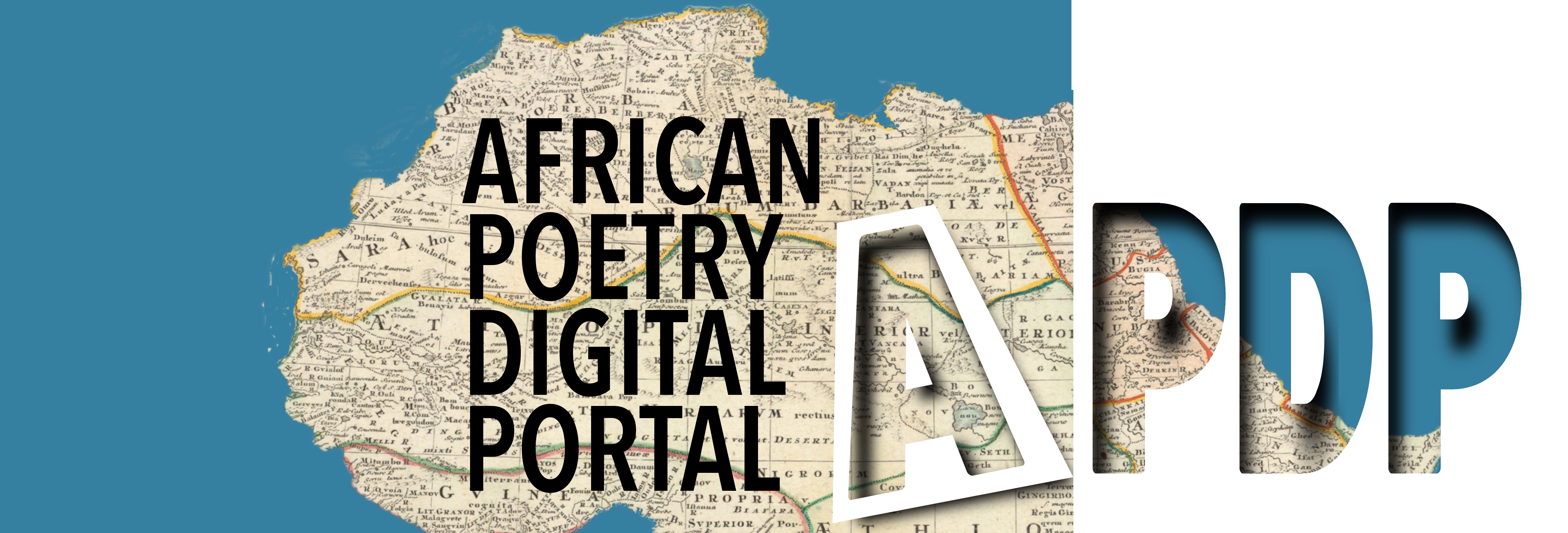Defining African Poetry
for African Poetry Digital Portal Research
Fully aware that our intent is to fault on the expansive than the exclusive, we have sought to have a generous and malleable, pragmatic, and correctible definition of “Poetry”, and we have done so by developing a working list of what would be of interest to the project in this regard. We seek to recognize the various technologies of communication, broadcast, and preservation of traditions and how they may inform how “poetry” is carried in different cultures, and to be open to these forms. We are very interested in how scholars and practitioners define what constitutes poetry in their traditions. Above all, while we appreciate that poetry can be a vehicle for conveying ideas related to history, genealogy, social organization, politics, anthropology, etc., we are primarily engaged in matters of aesthetics and the poetic—the use of language, the use of form, the use of rhetoric to convey ideas. We are fully aware of how fraught these terms are, but believe they are good places to begin this process of discovery. Our work, we hope, will give scholars and artists the opportunity to develop new terms that reflect the evolution of the poetic or poetry in Africa. Below is the working list that is neither exhaustive nor comprehensive:
- Conventionally published poetry in books, journals, periodicals and other printer sources that parallel traditional notions of published poetry (Western, Arabic, Swahili) etc.
- Work that various cultures and language groups in Africa define as “poetry”
- Proverbial traditions, Aphorisms, Sayings, and other formally defined expressions that function in various cultures and traditions
- Where spoken, expressed or written language is employed in song, incantation, religious practice, etc., we consider these are “poetic” expressions.
- The existence of written or symbological means of communication on art, runes, design, that return to the use of language as part of a convention would be of interest.
- We recognize the distinction between “written” and “oral” vehicles of “publishing” poetry and consider all valid and necessary areas of interest for our work.
- We therefore are interested in recorded performances of oral poetic expressions.
